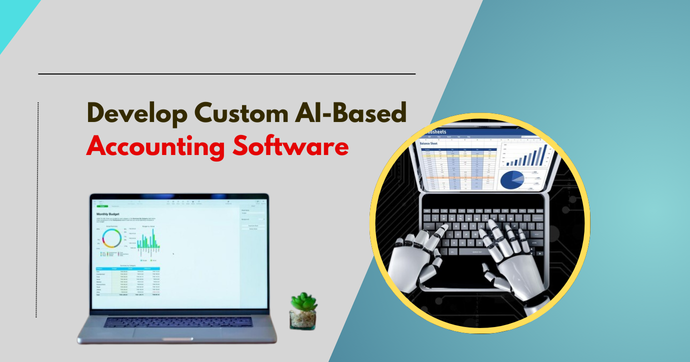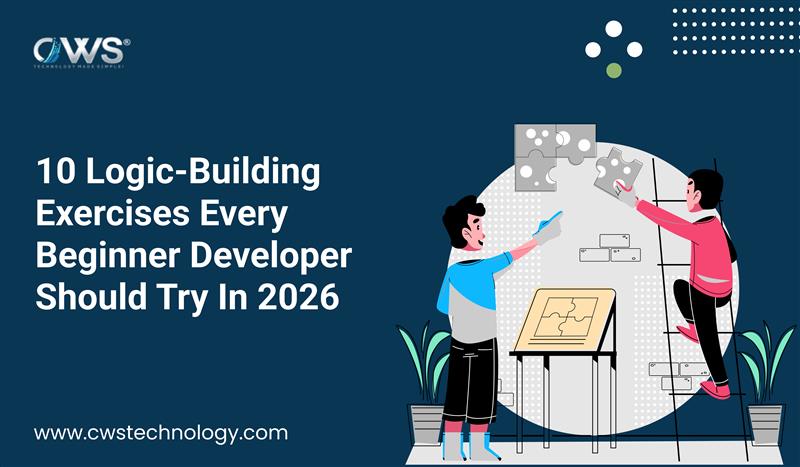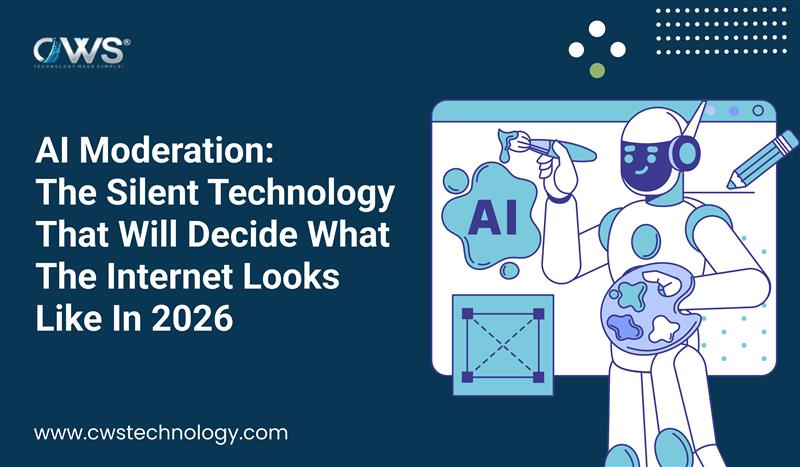The demand for efficient and smart accounting solutions is growing rapidly. AI-based accounting software is becoming a game-changer for businesses, helping them automate tasks, reduce errors, and save time. But one common question remains: how much is the costs of AI accounting software?
In this blog, we’ll dive into the various factors that influence the cost of developing such software. We’ll break down the costs step by step, helping you get a clear idea of what you might be looking at if you’re thinking of developing AI-driven accounting software for your business.
What is AI-Based Accounting Software?
Before we dive into the costs, let’s quickly understand what AI accounting software is. In simple terms, it’s software that leverages artificial intelligence (AI) to automate repetitive tasks like bookkeeping, invoicing, tax calculations, and financial reporting. The AI can learn from past data, predict trends, and even help make better financial decisions.
Why Go For Custom Software?
You might wonder why you should go for custom software when there are so many off-the-shelf options available. Well, here’s the thing: custom application is designed to meet the specific needs of your business. Whether you need specific integrations, features, or user interfaces, custom AI software for accounting can be built exactly to your liking.
Off-the-shelf software may be cheaper upfront, but it often comes with limitations, and you might end up paying for features you don’t need or miss out on important ones. Custom AI-based accounting software ensures you get exactly what your business needs—nothing more, nothing less.
What Influences the Cost of AI Accounting Software?
Now, let’s talk money. The cost of AI accounting applications depends on several factors, and understanding them can help you plan your budget better.
1. Complexity of Features
The more complex the features you need, the higher the cost will be. Basic features like automating invoices or generating reports are relatively easy to implement. However, if you want advanced features like predictive analysis, fraud detection, or seamless integrations with other software, the price tag will go up.
Basic Features: Automating tasks like data entry, invoicing, and tax calculations.
Advanced Features: AI-driven insights, trend prediction, fraud detection, and machine learning capabilities.
2. Size of the Business
The size of your business also plays a role in determining the cost. If you run a small business with a simple accounting structure, your software will cost less. On the other hand, a large enterprise with complex accounting needs will require a more robust solution, which will naturally cost more.
Small businesses may need fewer features and lower user capacity, while large enterprises may require custom features, scalability, and more extensive data handling capabilities.
3. Development Time
Developing custom AI-driven accounting software is a time-consuming process. It requires detailed planning, coding, testing, and revisions. If you’re in a hurry to get your software ready, you may need to pay extra for expedited development.
4. Team of Developers
Who’s developing your software? The cost can vary depending on whether you hire a local development team, or freelancers, or outsource the project to a software development company. Hiring a team in regions like North America or Europe may cost more compared to developers in Asia.
5. Maintenance and Support
Once your accounting software is developed, it’s not the end of the road. You’ll need ongoing maintenance, updates, and support. Bugs might need fixing, and new features might need to be added as your business grows. This will be an additional recurring cost.
6. Integration with Other Systems
Most businesses don’t rely on just one software solution. If you need your AI accounting application to integrate with other systems like CRMs, payroll systems, or e-commerce platforms, it will increase the complexity and cost.
7. Licensing Costs
Depending on the technologies and tools used in developing the software, there may be licensing costs involved. Some AI tools or libraries come with fees, and if your software relies on them, you’ll need to factor this into your budget.
Are you searching for a reliable company to develop your projects? Look no further! Click the button below to bring your vision to life.
Contact Now
Rough Cost Breakdown
Now that we’ve covered the factors influencing the cost of AI accounting application , let’s try to give you a rough estimate. Keep in mind that these numbers are very general, and the actual cost can vary based on your specific needs.
Basic AI Accounting: If you’re looking for something simple with limited features, you can expect to pay anywhere from $20,000 to $50,000.
Mid-Range AI Accounting: For businesses that need more advanced features like machine learning capabilities and integrations with other systems, the cost may range from $50,000 to $150,000.
Enterprise-Level AI Accounting: Large businesses with complex needs, extensive integrations, and high levels of customization could be looking at costs upwards of $150,000 to $500,000 or more.
These costs include development, testing, and the first few months of maintenance. Ongoing maintenance and updates will likely require additional costs, which can range from 15% to 20% of the initial development cost annually.
Is It Worth the Investment?
So, is developing custom AI-based accounting software worth the investment? The answer largely depends on your business needs. For businesses with unique accounting processes or large amounts of financial data, the benefits of automation, increased efficiency, and AI-driven insights can far outweigh the initial investment.
Custom AI software is a long-term investment that can save you time, reduce errors, and help you make smarter financial decisions. If you have the budget and the need for something tailored specifically to your business, then going for custom accounting software could be the right choice for you.
Conclusion
Just remember, the AI accounting cost isn’t fixed. It depends on your needs, the features you want, and the complexity of the solution. By understanding the factors we’ve discussed, you can better plan your budget and work towards a solution that meets your business goals without breaking the bank.
Must Know-: DevOps and Cloud: Speeding Up Software Development
Tags:-
Relates Posts









